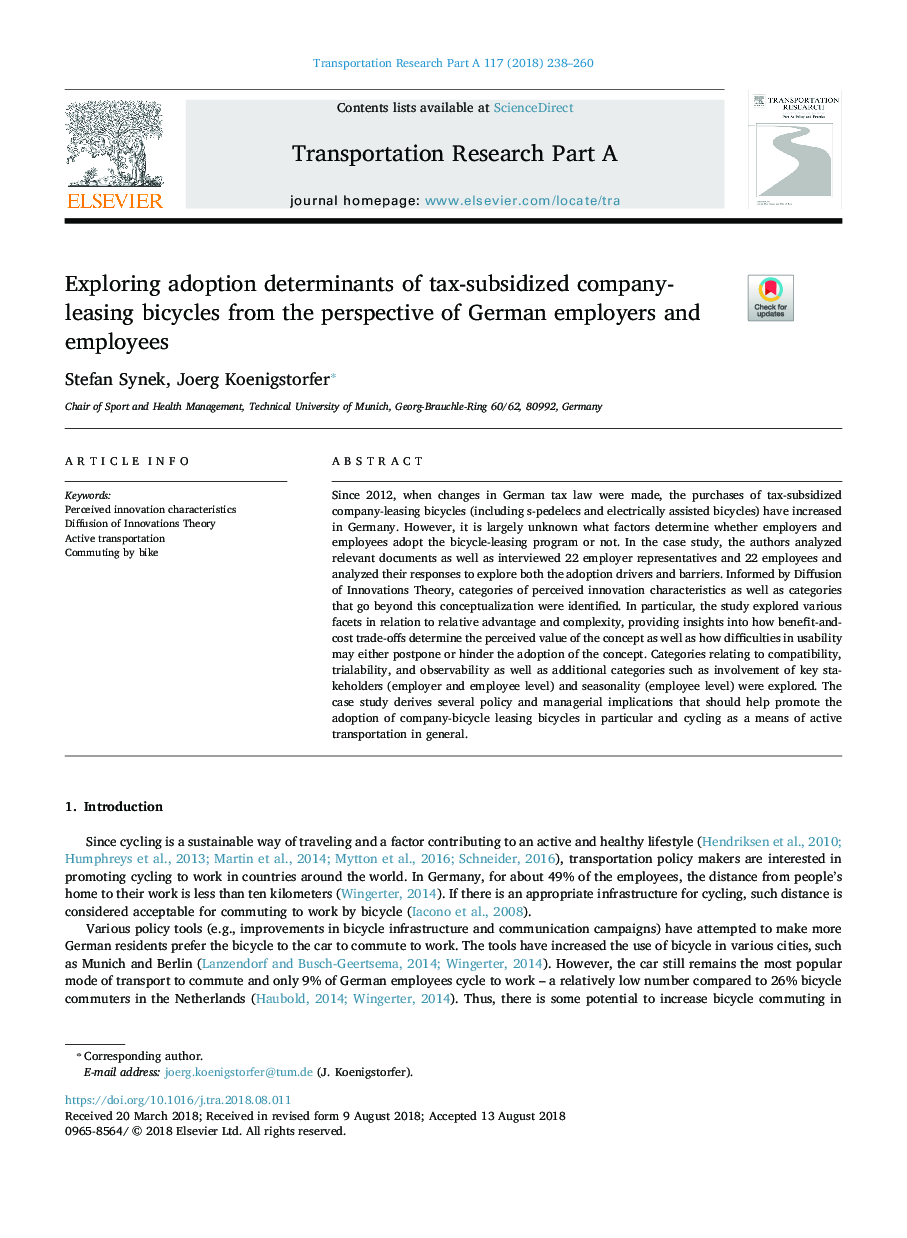| Article ID | Journal | Published Year | Pages | File Type |
|---|---|---|---|---|
| 9951928 | Transportation Research Part A: Policy and Practice | 2018 | 23 Pages |
Abstract
Since 2012, when changes in German tax law were made, the purchases of tax-subsidized company-leasing bicycles (including s-pedelecs and electrically assisted bicycles) have increased in Germany. However, it is largely unknown what factors determine whether employers and employees adopt the bicycle-leasing program or not. In the case study, the authors analyzed relevant documents as well as interviewed 22 employer representatives and 22 employees and analyzed their responses to explore both the adoption drivers and barriers. Informed by Diffusion of Innovations Theory, categories of perceived innovation characteristics as well as categories that go beyond this conceptualization were identified. In particular, the study explored various facets in relation to relative advantage and complexity, providing insights into how benefit-and-cost trade-offs determine the perceived value of the concept as well as how difficulties in usability may either postpone or hinder the adoption of the concept. Categories relating to compatibility, trialability, and observability as well as additional categories such as involvement of key stakeholders (employer and employee level) and seasonality (employee level) were explored. The case study derives several policy and managerial implications that should help promote the adoption of company-bicycle leasing bicycles in particular and cycling as a means of active transportation in general.
Related Topics
Physical Sciences and Engineering
Engineering
Civil and Structural Engineering
Authors
Stefan Synek, Joerg Koenigstorfer,
